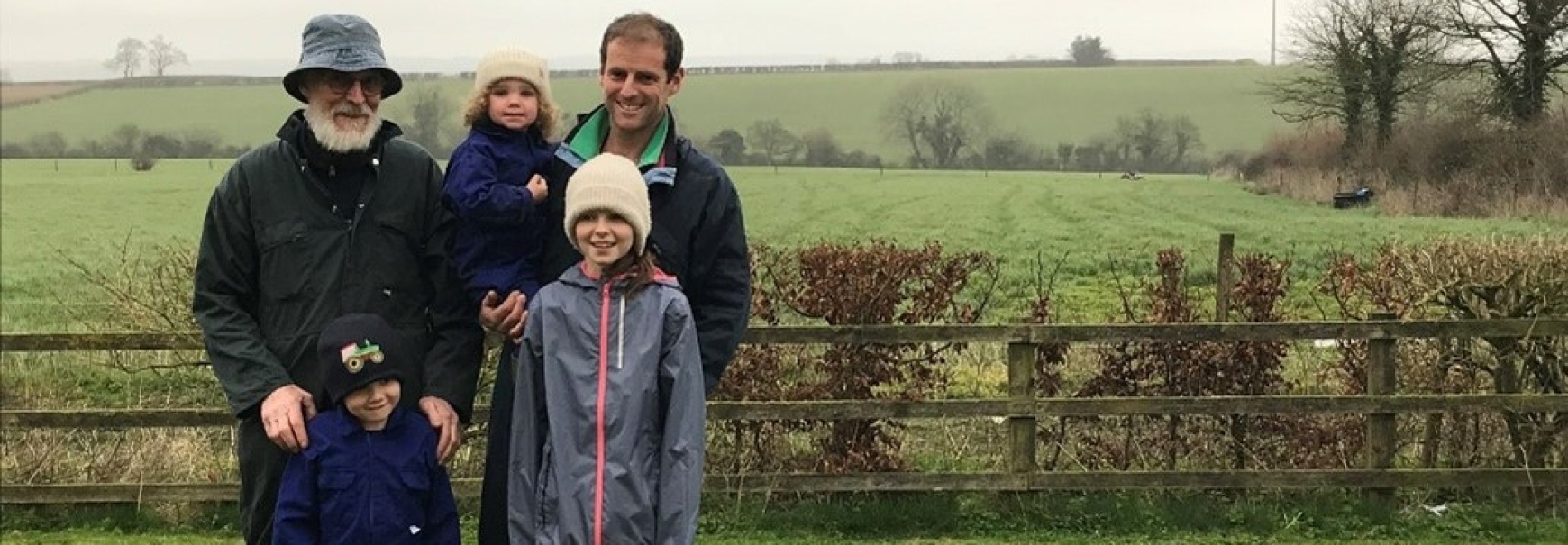What is climate friendly food?
Food that does not use too many inputs compared to its output? A short supply chain? Thoughtful farm processes? Church Farm Dairy, supplier of Wyke Farms (producing cheddar since 1861, and the biggest independent cheese producer in the UK), has been given its most recent Dairy Audit by NFU Energy as part of the collective’s sustainability assessment. The aim of this is to demonstrate what its farmers are doing to assist in the net zero effort and comes just as Wyke has announced its launch of the World’s first carbon-neutral Cheddar.
In this article we discuss how 4 changes to the set-up at Church Farm Diary could potentially reduce the energy emissions the farm uses to produce its milk by 42% per litre.
“Net zero does not mean carbon zero. The biological processes in agricultural production will always create emissions. It will be the combined effort of all farmers and growers in reducing emissions and increasing carbon stores that will bring farms across the sector into balance.”
Service Overview
An energy efficiency assessment will identify and evaluate opportunities for improvements to the
following:
- Housekeeping, procedures, behaviour
- Components or systems, e.g. plant, energy distribution and end uses
- Control of the above equipment
- Building fabric
- Requirements for additional monitoring
To achieve the objectives of an energy assessment, we use a three-stage approach:
Pre-visit data collection and analysis
Questionnaire covering details of your site and type of farming operation and energy usage. We also ask for copies of your most recent energy bills. This will allow us to analyse your energy data to identify patterns in use to better understand how energy use is managed
On-site energy audit
We will attend site to assess where energy savings can be made without compromising site operations. We will also inspect individual pieces of plant and buildings and get a full understanding of how the business processes are managed.
Report production and presentation
Following the site visit we will send you a short form report with a high-level overview of our findings and any areas for potential efficiency and cost saving improvements. We will advise if upgrades or changes could be beneficial and worthwhile financially. We will support this with some costs and return on investment figures. We will conclude the report with our recommendations and next step actions.
Our purpose is to provide farms with accurate and easy to understand information with a road map of what they can do to reduce energy consumption in bite-sized chunks.
“…it is these future generations that we will be helping, as well as reducing costs now.”
The Crocker Family, Church Farm Dairy, Wyke Farms milk supplier.
Church Farm Dairy
This farm runs 150 Autumn block calving cows which graze from March to November producing 957,000 litres of milk per year using approximately 69,500 kWh of electricity over a 12-month period on 250 acres - as yet, they have no renewables.
Church Farm Dairy, at Audit, used 496 kWh per cow, or 73 kWh per 1,000 litres of milk. This is considered higher than average, and to remain profitable in the face of increasing energy prices we made recommendations in their report to improve the energy efficiency of the business.
This audit found the following energy saving opportunities:
- Installation of technology*
- Installation of cooling system applications
- Installation of solar PV array
- Lighting upgrade and controls
*Finer details of these recommendations have been removed.
|
Energy Saving Option |
Energy Saving (kWh) |
Carbon Saving (kgCO2 equivalent) |
Annual Cost Saving |
Approximate Capital Investment |
Simple payback period |
|
1 |
5,475 |
1,210 |
£1,055 |
£2,000 |
<2 years |
|
2 |
9,367 |
2,070 |
£1,873 |
£7,000 |
<4 years |
|
Total |
14,842 |
3,280 |
£2,928 |
£9,000 |
|
By adopting options 1 and 2 from the above, Church Farm Dairy should be able reduce energy consumption by 22%, approximately 390 kWh per cow per year, or 57 kWh per 1,000 litres of milk.
By also installing a 20kW solar PV array, total energy consumption could be lowered further by a further 20%, down to approximately 310 kWh per cow per year, or 45 kWh per 1000 litres of milk.
Many dairy producers are also looking at other ways of decarbonising their farms and the benefits of adopting regenerative farming principles covering subjects such as soil health, climate resilience, re-use of waste-water, plant diversity and soil biology.
For anymore information about how we can help you with an onsite audit, or to have us present to your co-operative, please get in touch on 024 76696512.


